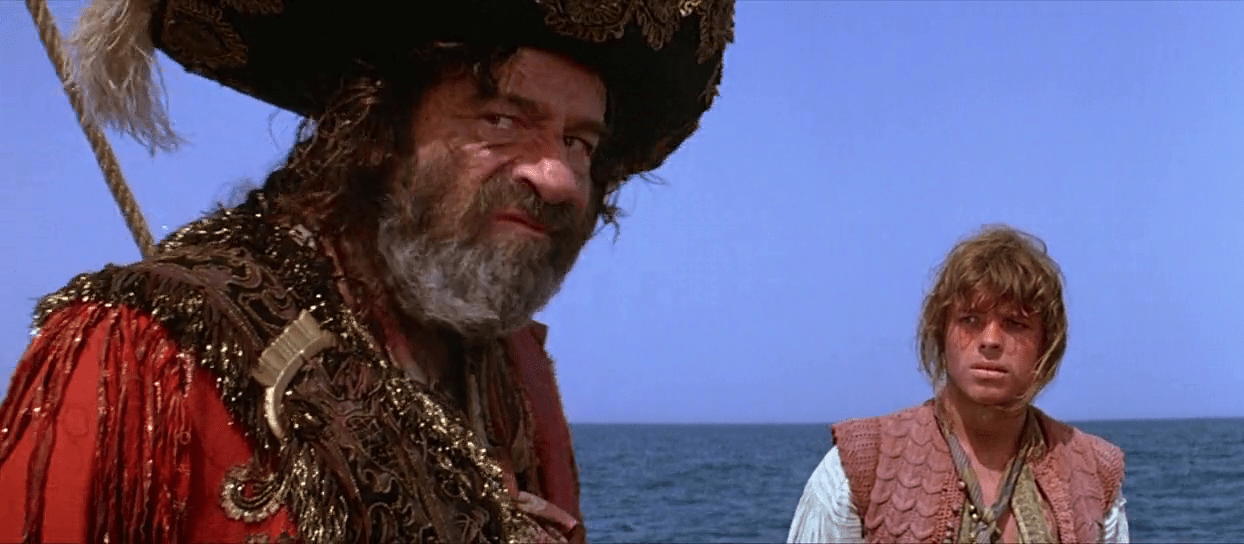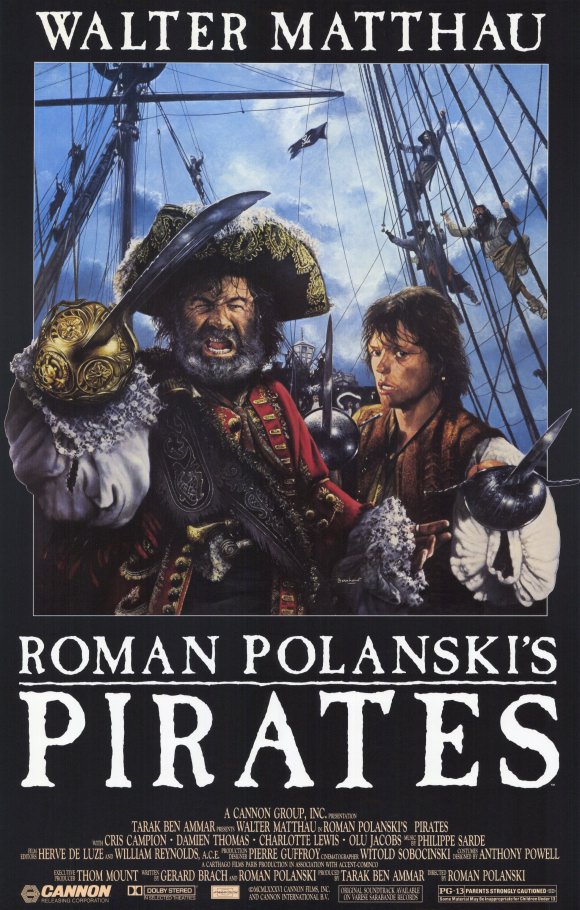

“It’s easier to live without a head than without gold, you numbskull!”
Cannon Films is well known for its prolific output of chintzy genre movies throughout the ‘70s and ‘80s. Much of their catalog is bargain bin thrills—blood, explosions, cartoon action. Think Chuck Norris, Charles Bronson and Jean-Claude Van Damme at their tough-guy best. But Cannon also did high fantasy, sci-fi, horror, musicals, comedy, you name it, all with their signature B grade aesthetic. Anything that Golan and Globus thought could turn a buck on a low budget, which meant they also frequently bought the distribution rights to independent films that might not otherwise get a wide release (they also owned theater chains). By the mid 1980s, they had spun their wheels enough to produce a few surprise hits and gain some industry traction, allowing them to aim a little bit higher. They tried courting prominent filmmakers looking to fund passion projects, giving them carte blanche to craft their own films. Tobe Hooper joined the fold for a trio of films (Lifeforce, Invaders from Mars, The Texas Chainsaw Massacre 2), and John Cassavetes (Love Streams), Godfrey Reggio (Powaqqatsi), George P. Cosmatos (Cobra), Jean-Luc Godard (King Lear) and Nicholas Roeg (Castaway) threw in their lot with Cannon as well. On the distribution front, perhaps the most famous European director to have a film released by Cannon was Roman Polanski, whose expensive, swashbuckling dud Pirates was snagged by the Israeli cousins after screening out of competition at Cannes in 1986. It was a potential return to form for the director after an extended hiatus due to legal troubles, but it’s hard to look at it as anything except a regrettable failure.
Inking Polanski to a juicy contract after he had directed films like Rosemary’s Baby and Chinatown seems like it would have been a no-brainer. But that’s overlooking the fact that he wanted to make a juvenile homage to the Errol Flynn pirate films that he had enjoyed growing up, rather than return to the genres of noir or psychological horror that had treated him so well. He’d tried comedy before and it had not gone well. His genre spoof The Fearless Vampire Killers and his kinky sex comedy What? are both low points in his oeuvre, and should have sufficiently informed the director that comedy was not his forte, and neither was action. Considering he likened his high seas comedy to the Pirates of the Caribbean Disneyland ride, one should not expect it to be on a level with Knife in the Water or Repulsion, and that’s fine. It’s also fine for it to get ravaged by critics who think it’s terrible.
So is there anything redeemable about it? Yes. For starters, the production, which was headed up by Tarak Ben Ammar, employed a bunch of Tunisian people for several years, spending nearly a quarter of the film’s $40M production budget to build a replica galleon. Polanski doesn’t show it off as much as you’d expect, but when he does it looks great. Maybe they were willing to splurge on the ship because they thought there would be sequels? Anyway, it’s now a tourist attraction. But building a full-scale ship is not something that studios just sign checks for willy nilly, and it’s the kind of ambitious undertaking that I enjoy reading about.
But the actual film is lackluster. Some of the humor is passable if understated, such as the bean-counting Dutch (Roy Kinnear) who laments the recent lack of hostage payments, some gibes at religious pietism and aristocratic haughtiness, and a few gross-out moments (like eating a rat). The action and violence are not as tame as that in the later Disney films, but neither do they have the heft and comedic timing of films like Richard Lester’s The Three Musketeers, which operates in the same mode but is far superior to Pirates. Instead, it exists somewhere in between in a less funny, less gory middle ground that doesn’t do much for me—or apparently, for most people who have seen it. The costuming is fun and there are a few semi-choreographed fight scenes with lots of bodies on deck at once that have a decent sense of scale. Walter Matthau, who plays Captain Thomas Bartholomew Red and spent the whole shoot wearing a peg leg, is gruff, bearded, and bedraggled and his effort is decent, although his accent is pretty annoying and he’s let down by the material. (It’s interesting to think how different things would have been if the director had gotten Jack Nicholson as he’d originally intended). Unfortunately, very few other cast members provide much of anything, in large part due to poor writing. Cris Campion, Charlotte Lewis, and Damien Thomas fill out the main ranks, but there are too many characters with too little to do, too much pointless talking, and too many lifeless confrontations. There’s nary a hint of drama, action, or comedy that feels correctly implemented, and the jagged tonal shifts sap every bit of energy out of the proceedings.
It boggles the mind that Polanski had been dreaming of making this since the days of Chinatown. It also doesn’t make sense that he felt the need to buff out his slim storyline to a nearly two-hour film. Despite Polanski’s pre-shoot enthusiasm, this is a passionless effort. There’s a decent realization of its central character and passable atmosphere, but it’s absolutely dreadful in terms of plot and action. A bland succession of scenes that never amounts to anything worthy of engagement, even if you’re just looking for some escapist fun.